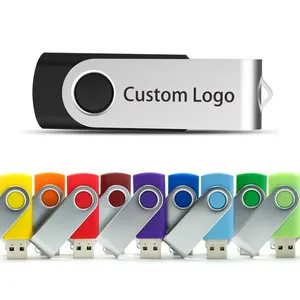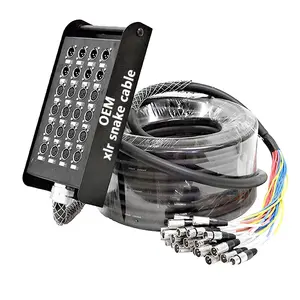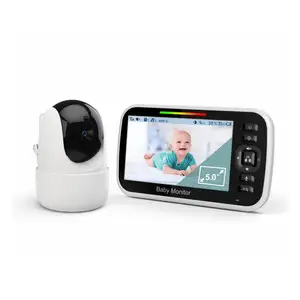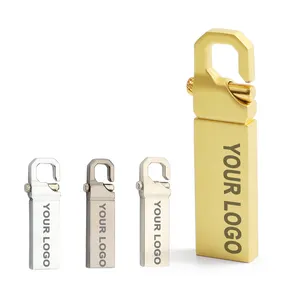Popular in your industry

























Top categories
About wholesale usb stick
Types of wholesale USB sticks
USB flash drives, commonly known as USB sticks, are portable storage devices that come in different capacities and types. The wholesale USB stick market offers a variety of products to cater to different needs, such as those that require higher storage capacities or faster data transfer speeds.
The following are the most common types of USB sticks:
- Standard USB Sticks: These are the traditional type of USB sticks that consist of a USB connector and a plastic or metal case to protect the connector when not in use. They come in various storage capacities, from 2GB to 256GB, and are used to store and transfer files from one device to another. They are also compatible with most devices that have a USB port, like laptops, desktop computers, and printers.
- Swivel USB Sticks: They are similar to standard USB sticks but have a rotating or swiveling mechanism that allows the USB connector to be tucked inside the casing when not in use. This design protects the USB connector from damage and makes the USB stick more portable. They are a popular choice for promotional purposes because they have a larger surface area for branding or logo printing.
- Mini USB Sticks: These are smaller and more compact than standard USB sticks, and hence, they are easy to carry around. They are also ideal for use with tablets or slim laptops that have limited USB port space because they take up less space when plugged in. They come in various storage capacities and are available with both USB-A and USB-C connectors.
- Secure USB Sticks: They have built-in security features such as hardware encryption or biometric authentication to protect the data stored on them from unauthorized access or theft. They are ideal for storing sensitive information or confidential data because they provide an extra layer of protection against data breaches or data leaks. They are commonly used by government agencies, businesses, or individuals who work with sensitive data and need to comply with data protection regulations.
- Waterproof USB Sticks: They have a durable and waterproof casing that protects them from water damage or physical damage. They are ideal for use in environments where the USB sticks are exposed to moisture, such as outdoor activities, construction sites, or industrial settings. They are available in different storage capacities and are compatible with various devices.
Functions and features
- Storage
USB drives provide portable storage for data, documents, photos, and videos. They offer a convenient way to transfer files and back them up. The storage capacity of USB drives varies. They are available with a storage capacity of 2GB to 1TB. The drives with a 2GB capacity have enough space to store a few documents, pictures, and music files. They are ideal for transferring small files. On the other hand, the 1TB drives offer plenty of space for large collections of multimedia files, documents, and applications. Users can choose a capacity based on their usage and storage needs. A 32GB USB drive is a popular choice for many users. It is an excellent option for those who want to store a large number of files. When it comes to the storage of larger files, the 64 GB USB flash drive is the best option. It provides enough space for users to store large files without worrying about running out of storage space. The wholesale USB drives are available in different storage capacities to meet the needs of users with different requirements. They provide an easy way to store and transfer files from one device to another. USB drives are portable, which makes it convenient for users to carry them around. They are lightweight and small in size, so they can be easily stored in a pocket or bag. These drives are plug and play, which means users can plug them into a USB port, and they will start working. They are compatible with various operating systems, like Windows, Mac, and Linux. This makes it easy for users to transfer files between different devices without worrying about compatibility issues. USB drives are durable and reliable. They have no moving parts, which makes them less susceptible to physical damage. Also, they are built to last. USB drives have a long lifespan, so users can rely on them for a long time. They also have a read and write speed of up to 200 MB/s, which makes it easy for users to transfer files quickly. Whether users want to transfer files from a computer to a USB flash drive or from a flash drive to a computer, it will only take a few seconds. The drives also have a USB 3.0 or USB 3.1 interface for faster file transfer. Users can transfer files at a faster speed. The USB drives are available in various brands, such as SanDisk, Kingston, and Samsung. Each brand has its own storage capacity. When buying a USB drive, it's important to choose the one that meets specific needs. Whether users need it for business purposes or personal use, the USB drives are available in different storage capacities. The drives are also available with a storage capacity of 128 GB, 256 GB, and 512 GB. They can be used to store any type of file, from documents to large multimedia files. A USB storage drive is a very useful tool that is worth having. It provides an easy way to store and transfer files. The wholesale USB drives are available at an affordable price.
Usage scenarios of wholesale USB sticks
USB flash drives are versatile tools that are used for a variety of purposes. Here are some common applications of bulk USB sticks:
- Transporting Files
The primary purpose of a USB drive is to store and transport digital files. Users can save documents, photos, videos, music, and more onto the drive and then carry it with them wherever they go.
- Backing Up Data
USB drives can serve as a backup solution for important files. Users can make copies of their documents, photos, and other data and store them on a USB drive as a precaution in case of a computer or system failure.
- Installing Operating Systems
IT professionals and tech-savvy users often use USB drives to install or run operating systems and software. This is particularly useful for system administrators who need to install an OS on multiple computers or troubleshoot a system.
- Boot Drives for Recovery and Troubleshooting
USB drives are ideal for creating bootable drives. This is useful for recovering a computer from a system crash, virus removal, and other troubleshooting tasks. This enables IT professionals to recover lost data or troubleshoot system problems.
- Delivering Presentations
Professionals use USB drives to store presentation files, documents, and multimedia content. The USB drive can be plugged into any computer to access the presentation materials.
- Installing Software and Updates
Software developers and system administrators often use USB drives to distribute application installations and updates. This is particularly useful for deploying software across multiple systems or updating firmware in embedded systems.
- Physical Security
Sensitive data can be stored on USB drives and then encrypted to protect it. This is important for companies that need to safeguard confidential information when it is being transported or stored.
- Archiving
USB drives with a large capacity can be used to archive old files, documents, digital photos, and videos. This is useful for long-term storage and keeping a backup of important data.
How to choose USB drives
When purchasing flash drives in bulk, it's essential to consider the storage capacity, speed, and compatibility. Storage capacity is the amount of data the flash drive can hold. It's crucial to determine the storage space needed before purchasing the flash drives. If the data is large files like videos or photos, then it's important to opt for higher storage space. If the data is documents or presentations, a lower storage space might suffice.
Another thing to consider is the read and write speeds of the USBs. These speeds impact how fast data can be transferred to and from the flash drive. Flash drives come with different speed ratings for read and write operations. USB 2.0 has a maximum transfer rate of 480 Mbps and is classified as full speed. USB 3.0 has a maximum transfer rate of 5Gbps, which is 10 times faster than USB 2.0. On the other hand, USB 3.1 is twice as fast as USB 3.0. Some flash drives have faster read and write speeds. For example, the 3.2 Gen 2x2 can reach up to 20 Gbps. This is ideal for transferring large files.
Moreover, one will need to consider the compatibility of the USB drives with the devices they will be used with. This includes looking at the operating system and the type of USB port. The good thing is that most USB drives are compatible with Windows, Mac, and Linux. However, when it comes to the port type, they are available in USB-A, USB-C, and micro USB options. It's important to know which port is available in the device to avoid getting the wrong flash drives. For instance, a USB-C port is the latest version and is found in the latest devices.
Q and A
Q1: What are the benefits of a USB flash drive?
A1: USB flash drives offer a convenient and portable way to store, transfer, and backup files. They are generally easy to use, affordable, and widely compatible with various devices.
Q2: What is the difference between a USB A and a USB C?
A2: The main difference between USB-A, USB-B, and USB-C is the connector. USB-A is a standard flat USB connector widely used in computers and other devices.
Q3: How many photos can 64GB hold?
A3: A 64GB USB drive can hold about 8,000 iPhone photos or 2,000 iPhone videos.
Q4: Can a USB C be repaired?
A4: It's usually possible to repair a USB-C port if it's only the connector that's broken. However, if there is damage to the internal circuitry, it may not be possible to repair it.





































